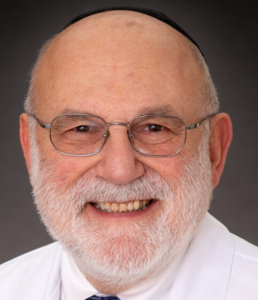
Women who fear breast cancer so much that they “check” constantly & avoid mirrors & wear high collars to resist checking would benefit tremendously from more than just a negative clinical breast exam and a clean mammogram.
It’s normal for women to grow quite anxious as the date of her monthly breast self-exam approaches.
It’s also normal for her to tremble with anxiety if she discovers a lump, and to suffer with ongoing anxiety between that point and the point at which her doctor announces, after the appropriate exams, “It’s benign.”
But breast cancer phobia that involves constant checking of the breasts – in the absence of a lump or other symptoms such as nipple discharge – is a whole new animal…as indicated in the post below:

There are women who will obsessively check their breasts daily, even after a doctor reports that everything feels normal, even after a mammogram plus ultrasound come back with normal results.
Sure, a mammogram and ultrasound can miss a malignant tumor, but we have to look at the entire picture in some of these obsessive breast checking cases:
• Clinical exam is normal.
• Self-exam uncovers no lumps.
• No other symptoms such as inverted nipple or puckering skin.
• Mammogram and ultrasound show no suspicious masses.
• The patient STILL obsessively checks anyways – up to several times a day, even asking her partner or mother to participate.
• She avoids mirrors because her reflection tempts her to peer at her breasts for visible symptoms.
• She wears high collars; low cut clothes create overwhelming temptations to slip her fingers down and check for extended periods.
Certainly, the number of deaths every year from breast cancer, and the fact that even women “who do everything right” still get diagnosed with this disease, contribute to the development of breast cancer phobia and obsessive checking.
The OCD component wouldn’t exist if breast cancer were 100 percent curable at any stage.
However, despite where BC detection and treatment stand at this point, obsession in an asymptomatic woman — especially if she has no family history or BRCA mutation — goes well-beyond healthy mental health.
Solutions to Obsessive Breast Checking and Cancer Phobia
Nobody knows how common this phenomenon is, and it’s easy to understand why those afflicted would not reveal it to their doctor.
Obsessive checking of one’s body due to health anxiety is probably a lot more common than believed, and extends to many other conditions — despite negative clinical findings — such as:
• Obsessive checking of moles
• Obsessive checking of lymph nodes
• Obsession with taking heart rate
“I am not a psychologist and do not treat OCD, but I don’t think that educating the general population to be familiar with how a breast should look and feel throughout the month will cause such tremendous anxiety and fear,” comments Dennis Citrin, MD, PhD, a board-certified medical oncologist who works with a team of experts to help patients fight breast cancer at City of Hope Chicago.
“Fear [to the levels explained above] would be pathological and I recommend a woman seek help from a psychiatrist,” continues Dr. Citrin.
“Of course, that should not deter a woman from going to the doctor if she notices anything unusual on the breast – lump, nipple discharge when not nursing, inverted nipple, etc.”
Women who can’t stop checking, but who have not seen a gynecologist, need to finally make that appointment.
Sometimes all it takes is a normal clinical exam to subdue a breast cancer phobia.
Some women will use lack of medical insurance as an excuse not to see a gynecologist.
If you work full time and are spending money on cosmetics, manicures, clothes and accessories, hair care products, etc., then you should feel at ease paying out of pocket for a wellness exam.
In addition, those afflicted with obsessive breast checking will benefit from seeing a mental health professional who specializes in health anxiety.
Also remind yourself that you will greatly impair your ability to detect changes in your breasts if you don’t let enough time pass in between self-exams!
Cognitive Behavioral Therapy
The American Institute for Cognitive Therapy says that CBT’s effectiveness includes:
• Helping you learn to distinguish between productive and unproductive worrying
• Helping you to avoid constant reassurance checks
And if you do have medical coverage but still keep putting off an appointment due to fear of “what the doctor might find,” here’s a slogan for you:
Truth can be frightening, but not knowing can kill you.
 Dennis Citrin, MD, is board certified in medical oncology with 30+ years’ experience, devotes his practice exclusively to patients with breast cancer and other high-risk breast conditions. He is the author of the book, “Knowledge is Power: What Every Woman Should Know About Breast Cancer.”
Dennis Citrin, MD, is board certified in medical oncology with 30+ years’ experience, devotes his practice exclusively to patients with breast cancer and other high-risk breast conditions. He is the author of the book, “Knowledge is Power: What Every Woman Should Know About Breast Cancer.”
 Lorra Garrick has been covering medical, fitness and cybersecurity topics for many years, having written thousands of articles for print magazines and websites, including as a ghostwriter. She’s also a former ACE-certified personal trainer.
Lorra Garrick has been covering medical, fitness and cybersecurity topics for many years, having written thousands of articles for print magazines and websites, including as a ghostwriter. She’s also a former ACE-certified personal trainer.
.









































